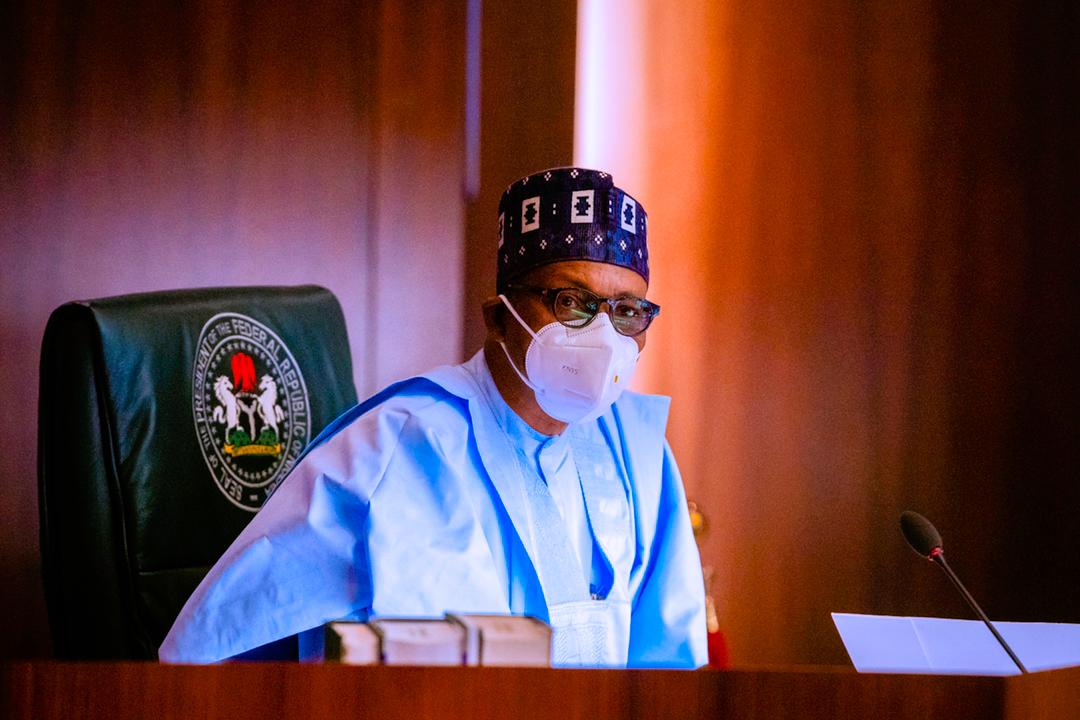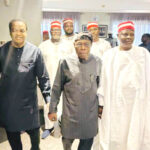Last week, Garba Shehu, the spokesman of the president, decided against common sense to issue a statement attempting to discredit Rev Fr. Ejike Mbaka over his criticism of President Muhammadu Buhari’s government.
Incidentally, Mbaka’s criticism is coming months after another famous cleric, Bishop Mathew Kukah had drawn the bile of the government over critical comments he had made about it.
The Catholic priest, who has to his credit something Buhari had never enjoyed—a huge following in the South East, had in January 2015 threw his weight behind Buhari, against the popular view of his majority Igbo people, tongue lashing then-President Goodluck Jonathan for his failings and endorsing Buhari’s presidential bid.
He was criticised by many Igbo politicians and electorate who had adopted Jonathan as an honorary Igbo president who must be returned to the villa. The priest was even condemned by the larger body of the Catholic Church and redeployed from his base in Enugu to Emene, where he wailed that there was suffering awaiting him, all because he had spoken in favour of Buhari.
In the last few days, the fiery priest, who like many Nigerians, has grown disenchanted by the failings of this government spoke out again, his ire this time directed at the same Buhari he had endorsed in 2015.
With the same boldness for which Buhari’s supporters admired him then, he asked the president to resign and told him that the killings in the country do not call for his silence but a show of leadership.
Rather than maintain a dignified silence, which in this case would not have harmed the government, presidential spokesman, Garba Shehu, issued a rather puerile and frankly embarrassing response. He dragged Mbaka’s priestly robe in the gutter of politics, (only possible because the priest himself had entered the pit in the first place) tongue-lashed him and finally dismissed his outrage as being motivated by his failure to secure government “contracts as compensation for his support.”
It reminded me of those “kwalelenka” childhood bickering where one child would exclude another from a group over some petty issue and make fun of him over it.
In all honesty, this from the presidency was excruciating to watch. Especially since this so happens to be one of the most impassioned statements to have emanated from the presidency. In the years that mass killings, mass abductions and mass insecurity became the order of the day, statements coming out of the villa have lacked any kind of passion or sincere commitment to deal with the problem.
What has been more painful to watch, besides the brutal decimation of our collective sense of security and the gory murders of innocent Nigerians, has been the listless responses of the government whenever it decides to acknowledge any violation of Nigerian lives. Dry, innocuous statements from the Presidency that neither rings of genuine empathy, inspire confidence in the citizenry nor strike fear in criminals, have become the staple from the presidential spokesmen.
The only time they genuinely seem to come alive, that their press statements are imbued with any kind of fire or life is when they activate “Attack Dog Mode” when the regime or their principal has been called to question.
This attitude has since become the norm with the security agencies, whose principal focus seems to be regime protection at the expense of the country’s overall wellbeing. This is in no way suggesting that protecting the government should be treated with levity. But it is fascinating in a deeply offensive way to see these same security agencies that could not arrest Auwal Daudawa, who kidnapped 300 students from President Buhari’s backyard, swiftly swoop in to detain and question the likes of Usman Bugaje or even Salihu Tanko Yakasai for criticising the president.
They have taken the concept of regime protection to new levels such that a platoon of fiercely armed and equipped security personnel would hang around one public official, carrying his files, holding his umbrellas, guarding his private residences, guest houses, his chicken coops and his spouse’s handbag when entire villages, without security presence, are being decimated by bandits or terrorists.
It is shocking the efficiency the DSS brings to the arrest of critics of the regime, while mass murderers of innocent Nigerians, like the ubiquitous herdsmen and genocide instigators like the Sunday Igbohos and Nnamdi Kanus run free.
Buharin Daji, that first infamous bandit who tormented villages in the North West and Auwal Daudawa waltzed in and out of peace deals with the state because even they were convinced that the state lacked the capacity, but most crucially, the political will to bring them to justice.
This absence of justice has only given rise to the rule of the jungle, which criminals mete out on innocent Nigerians or their fellow criminals. If fellow bandits had not killed Buharin Daji and Auwal Daudawa, they would most likely still have been in circulation today, going about their murderous business with the arrogance and impudence of those who have nothing to fear from the Nigerian state.
Buhari’s supporters argue that he is not playing Nero. That he is not putting up his feet, picking his teeth as Nigeria, from North to South, East to West burns, as bandits, criminal herdsmen and regional militias balkanise the country into isolated pockets of relatively safe spaces that are themselves being constantly raided by brigands hunting residents for ransom.
The reality is that despite Buhari’s experience in the military and non-stop promises over the 12 years of his campaign to be president, the security situation in the country has progressively worsened under his watch.
All of this bears the hallmarks of chronic complacency in government. Complacency, especially in leadership, is an insidious disease that leads to many things.
First, it leads to fear, of enemies real or imagined. Only this Sunday, the DSS sounded an alarm over alleged plots by some civilians to overthrow the government by having a gathering of some Nigerians declare a vote of no confidence in the government. If this is true, it would be the first time any government in the world would be overthrown in such a manner. Whether it is reason enough for the government to be afraid or not is secondary, but the government is surely taking this serious, perhaps with as much seriousness as it has never accorded the security situation in the country.
Complacency also causes the leadership to stop paying attention to details, to stop following through on policy and projects and little but vital details such as the wellbeing of its citizens, or fighting corruption, or crippling unemployment or inflation levels.
It also leads to tension unknowingly mounting. In this instance, the tension that began with the isolated intimidation of critics of the government is now rearing its head in a coup plot allegation, which might license wider harassment of dissenting voices under the guise of regime security.
Ultimately, complacency would cause the leader to stop leading and start following, becoming only a figurehead at the whim and dictates of his handlers.
While all these power games are playing out, while the priest and president are grasping each other’s collars, Nigerians in their homes, their farms and their workplaces are feeling unsafe while dozens are being massacred daily. It is high time this government stopped messing about, stopped conjuring imaginary enemies of the regime, stopped picking its teeth and take control of the situation by fighting the enemies of the people and the country. Nothing guarantees regime security like a happy and contented people.

 Join Daily Trust WhatsApp Community For Quick Access To News and Happenings Around You.
Join Daily Trust WhatsApp Community For Quick Access To News and Happenings Around You.

